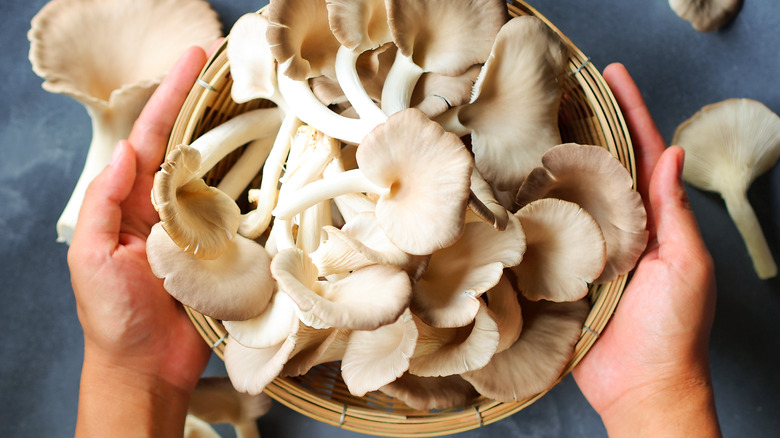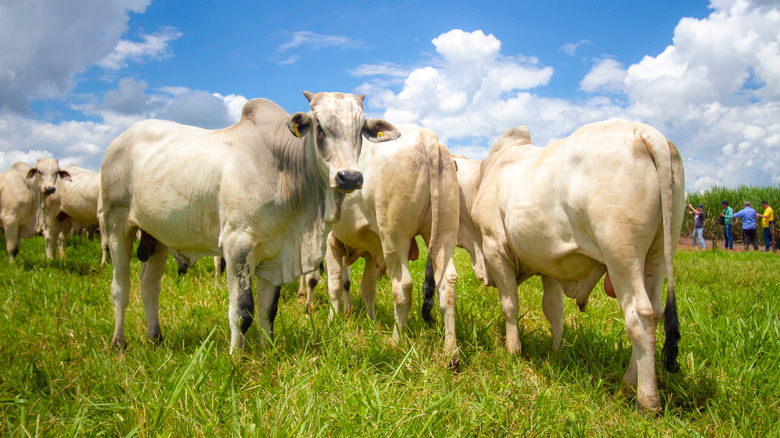New Study Reveals Environmental Impact Of Swapping Meat For Fungus
In excellent news for fungi-lovers, scientists have found that eating more mushrooms could make a major positive environmental impact. In a new study published in the scientific journal Nature, research shows that swapping your beef for faux meats made from microbial protein could save massive swaths of rainforest.
Scientists at Germany's Potsdam Institute for Climate Impact Research found that if just one in every five meat-based meals were swapped for the prominently fungi-based protein, deforestation levels could be cut in half over the next 30 years. This 20% reduction in global meat consumption would also save massive quantities of water and reduce greenhouse gas emissions significantly.
"Ruminant meat provides valuable protein to humans, but livestock production has many negative environmental impacts, especially in terms of deforestation, greenhouse gas emissions, water use, and eutrophication," the Potsdam study begins. According to the researchers, increased demand for meat has historically led to the elimination of forests in order to make room for more grazeable pastures. Per The Washington Post, one notable example is Brazil's Amazon, where rampant cattle ranching has led to widespread destruction of the rainforest.
Livestock farming takes up a lot of land
The environmental implications of widespread livestock farming has long been a focus of environmentalists and climate scientists. In 2019, the International Journal of Environmental Research and Public Health reported that, globally, livestock was responsible for an estimated 35 to 40% of methane emissions, 68% of enterogenic nitrous oxide emissions, and 64% of all ammonia emissions. Additionally, in 2010 Stanford University found livestock production occupied more than ¼ of the world's total land (with nearly half of the land in the United States devoted to beef production, according to U.C. Davis) and produced 18% of all greenhouse gas emissions.
While eliminating the livestock industry entirely is an unrealistic goal that would negatively impact large swaths of the world's most disadvantaged populations — that same 2010 report estimated 1 billion impoverished people make some portion of their income from domesticated animals — making small dietary changes could have a monumental environmental impact.
"Our model projections show that substituting 20% of per-capita ruminant meat consumption with [microbial protein] globally by 2050 ... offsets future increases in global pasture area, cutting annual deforestation and related CO2 emissions roughly in half, while also lowering methane emissions," the Potsdam scientists wrote in their report.
Fungi-based meat alternatives are on the rise
While the Potsdam study notes that a dietary shift towards plant-based eating using a variety of imitation plant-based meat products is beneficial, it puts a particular emphasis on the benefits of lab-produced fermented proteins created from microbes (via The Washington Post). This microbial protein can be produced using a variety of microorganisms; however, The Guardian explains fungi is the primary source of these plant-based imitation products. (The outlet names Quorn as an example of a company selling faux meat products made with microbial protein.)
In a press release, Florian Humpenöder of the Potsdam Institute stated, "The good news is that people do not need to be afraid they can eat only greens in the future. They can continue eating burgers and the like, it's just that those burger patties will be produced in a different way. ... Replacing minced red meat with microbial protein would be a great start to reduce the detrimental impacts of present-day beef production."
The broad environmental implications of animal farming has inspired many in the culinary world to make a major shift — including, notably, renowned Eleven Madison Park chef Daniel Humm, who rocked the restaurant world by announcing his acclaimed restaurant would transition to a fully plant-based menu last year (via The New York Times). Recently, the chef debuted a high-end plant-based meal delivery kit (available only in New York City) in his latest effort to popularize meat-free fine dining.
As for the average home cook hoping to do their small part in reducing global meat consumption, learning how to cook with mushrooms or swapping in a microbial protein every few meals is a good start.


